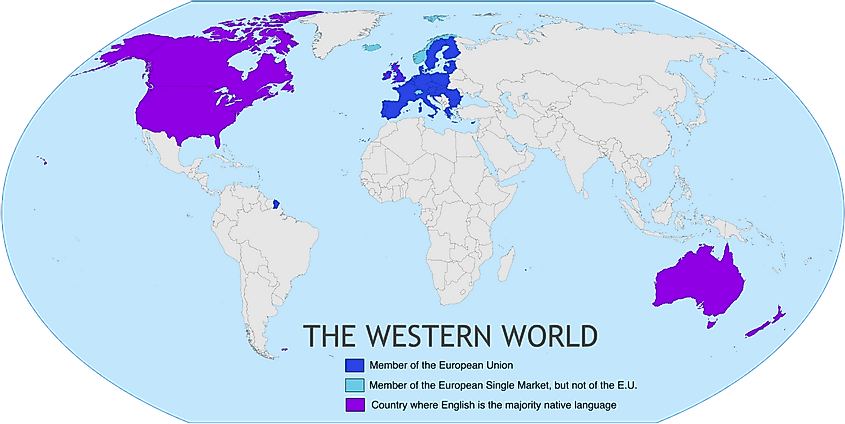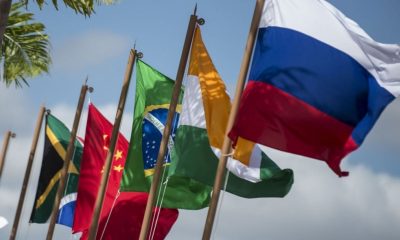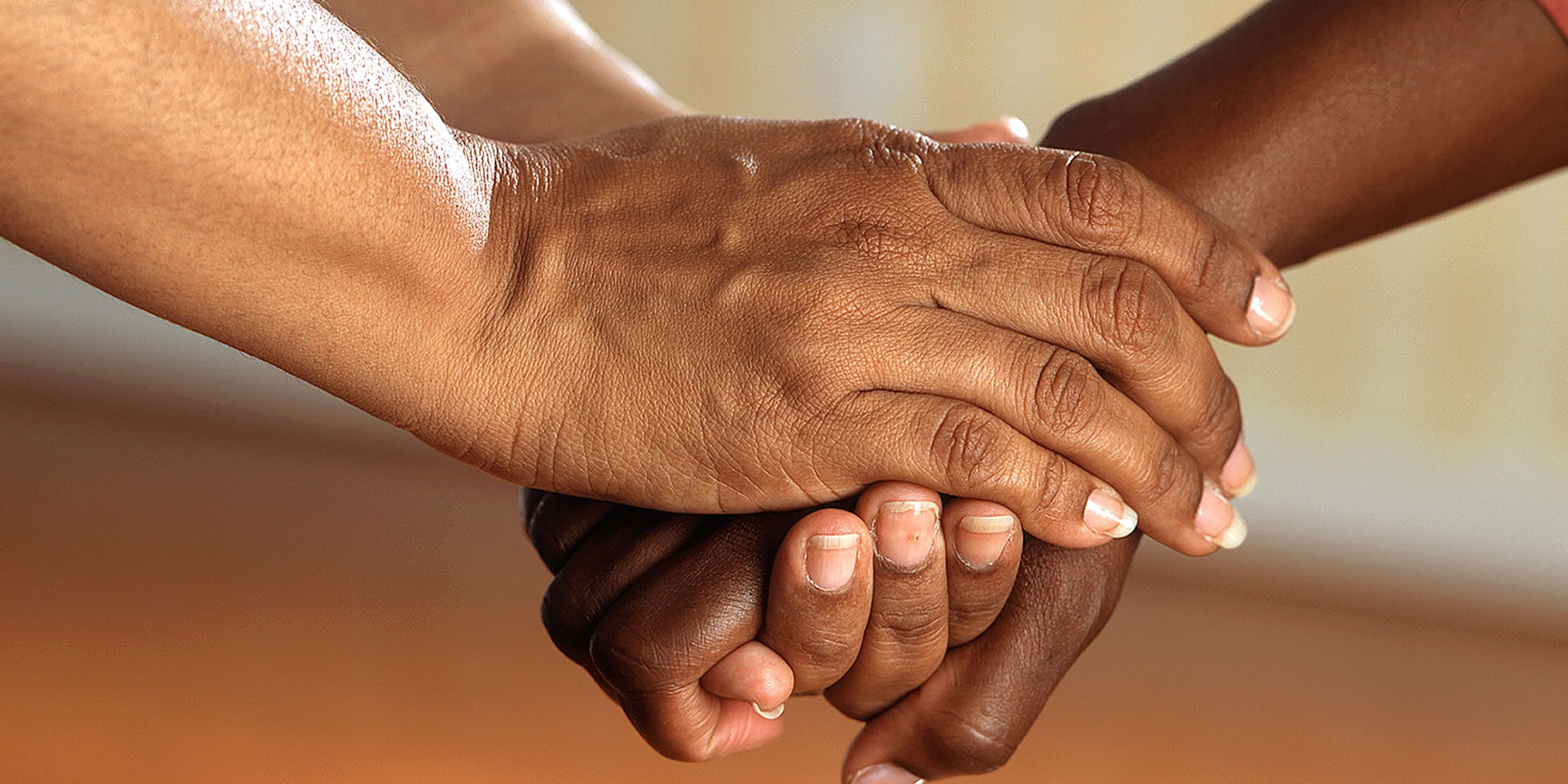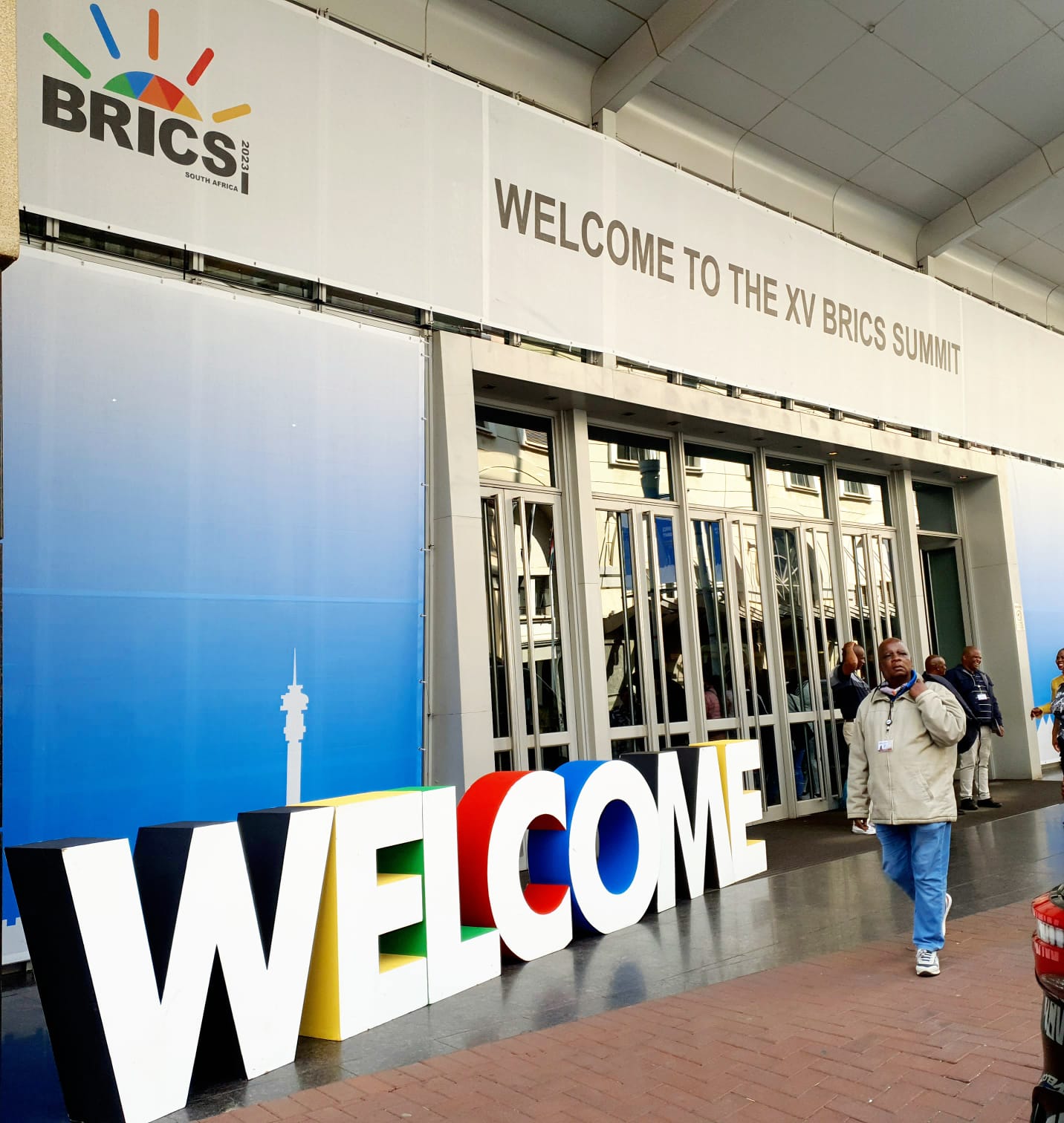Feature/OPED
China, Western World and Human Rights Revolving Doors

By Jerome-Mario Utomi
The reported remark by Chinese Foreign Ministry Spokesperson Wang Wenbin at the just concluded 47th session of the United Nations (UN) Human Rights Council, calling on the Western world to reflect deeply on their own human rights abuse, has again brought to our consciousness the troubling reality that despite the widening strides by pro-democracy advocates to advertise the virtues and attributes of democracy over other forms of government, the balance of power within the last decades appears to be shifting.
The envoy said in part, “I want to stress that it is these Western countries that are using human rights as an excuse to exert pressure and interfere in other countries’ internal affairs based on political motivation, false information, lies and rumours.
“It is these Western countries that proclaim themselves to be ‘judges’, pointing fingers at and humiliating the human rights situation in developing countries, which violates the purposes and principles of the UN Charter.”
That was not the only discomforting word from Wang Wenbin as he further said, “They claimed welcoming criticism from outside. However, when China and other developing countries express reasonable concerns about their human rights problems, they appear to be extremely uncomfortable or even unacceptable, adding that their claim that China engaged in microphone diplomacy and interference in internal affairs were typical double standard behaviour and fully reflected their deep-rooted arrogance, prejudice and hypocrisy.”
He finally urged the West to take effective measures to solve their serious human rights problems at home.
Clear enough! The above position becomes easy to admit when one remembers that China was recently described by a report as a nation that just experienced a period of economic growth, the likes of which the world had never before seen.
There also exists growing insistence that China’s model of development is superior to that of the West. China’s model, the piece submitted, blazes a new trail for other developing countries to achieve modernization and offers a new option for other countries and nations who want to speed up their development while preserving their independence, as western talk about democracy, is simply a pretext for robbing poorer countries of their sovereignty and economic potentials.
However, beyond this praise, there exist in the opinion of this piece, ingrained paradoxes that are not only newsy but characterized as a revolving door this latest outburst by China
Separate from the realism that China was in the past reputed for receiving such accusations of human rights abuses from the Western countries, many commentators/reports are uniformly laced with similar judgments.
One of such reports stated; China, ‘interestingly’, is ruled, increasingly dictatorially by an unelected communist party that puts people in prison for their convictions and limits all forms of free expressions and associations.
Apart from being ruled, ‘increasingly dictatorially, it essentially noted that Europe’s biggest powers- Germany, France and the United Kingdom-along with Poland, Spain and the Scandinavian countries, maintain/believe that China is undermining human rights, democratic ethos, rules and standards.
The country’s fundamental obstacles- are its government’s reluctance to appreciate development plans and reform programs from a rights-based perspective.
Directly and indirectly, it adversely affects the infusion of human rights principles of participation, accountability, transparency and non-discrimination towards the attainment of equity and justice in development initiatives.
As clarified by the United Nations Independent Expert on the Right to Development, for a programme to be tagged development, it must require a particular process that allows the realization of economic, social and cultural rights, as well as civil and political rights, and all fundamental freedoms, by expanding the capabilities and choices of the individual.
In the same style, while writing on the well-considered topic The Old World and The Middle Kingdom-Europe Wakes Up to China’s rise, Julianne Smith and Torrey Taussig noted that Chinese President Xi Jinping’s consolidation of power has shaken Germany’s confidence in China’s future political stability.
They explained that in the name of national security, the Chinese government detained over one million Muslim Uighurs in the western province of Xinjiang in a “reeducation camp.”
To many in Germany and across Europe, these developments raise troubling questions over what a Chinese-led world would look like.
Just before you hastily conclude, wait till cast a glance at the next paragraph that says something new and different.
German industry, the report added, is growing concern about Chinese technological progress. German business leaders who have long supported deeper economic ties with China are now apprehensive about China’s state-led quest for technological supremacy at the expense of German companies. The Federation of German Industries released a widely cited report cautioning companies to reduce their dependence on the Chinese market. Then there is the long-standing issue of Chinese hackers stealing foreign industrial and technological secrets.
The heightened frequency of Chinese hacking led the German government’s cybersecurity agency to warn German companies about the growing risk of Chinese cyber-espionage. That came on top of a 2017 case in which German intelligence agencies accused China of creating fake LinkedIn accounts to connect with more than 10,000 German citizens, including lawmakers and government officials, in order to gain information, recruit sources, and infiltrate the Bundestag and government.
Germany, it says is not alone in its awakening.
French President Emmanuel Macron recently declared an end to European naivete on China. Macron also invited Merkel and Jean-Claude Junker, the president of the European Commission, to join his meetings with Xi in order to present a united front. The message was clear: Europe will resist China’s attempts to divide it.
Many European countries are experiencing what one senior EU official described as “China fatigue,” the report noted. These grievances are having a mounting effect on German policy toward China. Merkel now refers to China as a “systemic competitor.”
Similarly, several European countries have tightened up their screening of Chinese investments. In 2018, the German government, citing national security, blocked a Chinese investor from buying Leifeld Metal, a leading German producer of metals for the automobile, space, and nuclear industries. It was the first time that the German government had voted for a Chinese takeover.
The move was followed by a new law giving the government power to block a non-European investor from buying a 10 per cent or higher stake (down from 25 per cent) in a German business. The law includes media companies, a sign that Germany is worried about Chinese information influence.
Some European countries have grown disenchanted with China’s behaviour; they have started to push for a more coherent EU wide strategy. A recent EU white paper on China labelled Beijing a “systemic rival promoting alternative models of governance” and called on the EU to pursue a more reciprocal relationship with China and to strengthen its own industrial base, it concluded.
As the debate rages, two things stand out.
Western countries must provide answers to questions raised by the Chinese government. They are in this order; “Why do they (Western countries) turn a blind eye to issues in Western countries such as the systematic discrimination against ethnic minorities including those from Asian and African descent, infringement on the rights of indigenous people, large-scale human rights violations in immigration detention centres, killing civilians in overseas military operations, military intervention resulting in a large number of civilian casualties and displacement and unilateral coercion measures that seriously damage human rights
Why do they never criticize their partners for this on the UN Human Rights Council? Why do they turn a deaf ear to the criticism of the international community?
For its part, China must recognize that ‘authoritarianism may do well in the short term, but the experience clearly shows that only democracy produces good government over a long haul’.
Jerome-Mario Utomi is the Programme Coordinator (Media and Policy), Social and Economic Justice Advocacy (SEJA), Lagos. He could be reached via je*********@***oo.com/08032725374
Feature/OPED
History is Watching: Tinubu’s Moment to Rescue Nigeria’s Stolen Future

By Blaise Udunze
Governance is not complicated. It is about people and the resources entrusted to serve them. When resources are managed wisely, the people prosper, and prosperity spreads. Mismanage them, and poverty multiplies. Nigeria’s tragedy is not scarcity. It is stewardship.
For decades, Nigeria, described as Africa’s largest oil producer, has earned hundreds of billions of dollars, yet remains home to some of the world’s poorest citizens. That contradiction is not accidental. It is systemic. It reflects policy distortion, institutional weakness, and a culture of impunity that has too often treated public wealth as political spoils rather than a national trust.
The Abuja-based Independent Media and Policy Initiative (IMPI) recently captured this paradox bluntly by saying, Nigeria’s poverty crisis is not the result of inadequate resources, but of persistent failure to manage them prudently and sustainably. It described the crisis as a “self-inflicted economic malady.” That phrase should trouble every public official.
Between 1980 and 2015, Nigeria rode multiple oil booms. Instead of converting windfalls into diversified productivity, the country succumbed to what economists call the Dutch disease. Oil revenues surged. The naira appreciated. Imports became cheaper. Domestic production became uncompetitive. Agriculture declined. Manufacturing withered.
IMPI’s analysis shows that between 1980 and 1986, exchange rate appreciation crippled local industries and turned Nigeria from a major agricultural exporter into a net food importer. Cocoa, palm oil, and rubber, once pillars of export strength, gave way to dependency. A parallel distortion emerged, the so-called “Nigerian disease.” Rural labour migrated to cities in search of oil-fueled wage spikes. Farming declined. Food insecurity deepened, which has continued to linger each day. Over-mechanised and poorly coordinated agricultural investments, uncompleted irrigation projects, and subsidies skewed toward politically connected elites widened inequality. Oil wealth created the wrong impression of prosperity while hollowing out the economy’s productive core.
Former Vice President Yemi Osinbajo once framed the issue plainly: Nigeria’s challenge is not geographical restructuring but resource management and service delivery. After decades of vast oil earnings, the uncomfortable question remains. Where is the infrastructure?
If mismanagement were purely historical, recovery might simply require time and discipline. But the problem is not confined to the past, and this is because between 2010 and 2026, an estimated $214 billion, roughly N300 trillion, has been flagged as missing, diverted, unrecovered, irregularly spent, or trapped in non-transparent fiscal structures. These figures reveal that they are not speculative but arise from audit reports, legislative investigations, civil society litigation, and investigative findings across administrations.
The oil sector alone provides sobering examples. In 2014, unremitted oil revenues triggered national outrage. Years later, audit queries continue to trail the Nigerian National Petroleum Company Limited. The names of institutions change. The pattern persists. The Central Bank of Nigeria has also faced audit alarms over trillions in unremitted surpluses and questionable intervention facilities. Auditor-General has flagged failures to remit operating surpluses into the Consolidated Revenue Fund, alongside hundreds of billions allegedly disbursed to unidentified beneficiaries under intervention schemes, which is alarming and a common fraudulent practice.
Across ministries, departments, and agencies, trillions have been cited in unsupported expenditures, unremitted taxes, procurement irregularities, and statutory liabilities left unrecovered. The institutions differ. The language of audit reports varies. The years change. The pattern does not.
A natural occurrence, which is the plain truth, and unarguably, is that when electricity funds disappear, the grid collapses. Also, when agricultural loans remain unrecovered, food prices surge. The same goes when social investment programmes stall due to bureaucratic lack of transparency; the vulnerable remain exposed. Nigeria borrows not only because revenue is insufficient but because leakage is persistent.
The 2026 fiscal projections sharpen the dilemma. This has continued to raise concern as seen in the proposed N58.47 trillion budget, which carries a N25.91 trillion deficit, with N15.9 trillion allocated to debt servicing. What signifies a systemic failure is that nearly half of the projected federal revenue will service past loans before development priorities are funded. The truth be told, borrowing is not inherently destructive. Economies such as the United States deploy deficit financing strategically to expand productivity. The difference lies in what the borrowing finances.
To date, Nigeria’s deficits are increasingly funded by recurrent obligations rather than productivity-enhancing infrastructure. This is why Nigeria’s domestic borrowing persistently crowds out private-sector credit, driving up interest rates and stifling enterprise. Time after time, the nation has continued to witness how weak revenue mobilisation, overt oil dependence, and institutional inefficiencies compound the strain, and for these reasons, public debt is projected to has surpass N177.14 trillion by the end of 2026, which is driven by the budget deficit in 2026 Appropriation Bill.
Based on what is obtainable in other advance country, debt becomes sustainable only when borrowed funds are channeled into growth-enhancing investments, institutions ensure transparency and value for money, and economic expansion outpaces debt accumulation. When these conditions weaken, deficits evolve into a fiscal trap.
Despite some of the challenges occasioned by mismanaged resources and leakages, policymakers project cautious optimism. The Central Bank forecasts GDP growth of approximately 4.49 percent, moderating inflation, and foreign reserves exceeding $50 billion. On paper, stability appears to be returning. But stability is not prosperity.
Take, for instance, between 2006 and 2014, Nigeria recorded average GDP growth rates of six to seven percent, peaking near eight percent. Yet poverty remained stubbornly high, judging by the lived experience of the populace. This shows that growth without inclusion is only an arithmetic, not development. Today, households confront elevated food prices despite the report that food inflation fell from 29.63 per cent in January 2025 to 8.89 per cent in January 2026, energy costs, and unemployment. Yes, one may say that the exchange-rate unification and fuel subsidy removal were economically rational reforms. However, without aggressive domestic production expansion and credible social safety nets, adjustment costs fall heavily on citizens.
The concept of the “resource curse,” coined by Professor Richard Auty, explains why resource-rich nations often experience weaker institutions and lower long-term growth than resource-poor peers. Nigeria truly exemplifies that irony. Yet the curse is not inevitable. This is because countries such as Norway and Botswana transformed natural resource wealth into long-term prosperity through disciplined institutions, sovereign wealth management, and uncompromising transparency, which happens to be foreign to Nigeria’s system. The difference was not geology. It was governance.
Former President Olusegun Obasanjo has never been quite over resource plundering as he lamented that Nigeria has squandered divine gifts. The same lies with the former Minister George Akume, who warned that no nation grows if a quarter of its resources are consistently mismanaged. The former Anambra governor, Peter Obi, observed bluntly that wealth cannot be entrusted to those without integrity. The United Nations is also amongst those who have repeatedly warned that mismanaged natural resources fuel instability and conflict. Where institutions are weak, resource wealth becomes combustible. Nigeria has navigated that edge for decades.
Nigeria does not suffer from a shortage of reform announcements. It suffers from a gap between announcement and enforcement. The Treasury Single Account was designed to consolidate public funds under constitutional oversight. Yet significant funds have periodically remained outside complete transparency. The problem is that audit findings often accumulate without visible recovery, prosecution, or systemic reform.
The reality is that if every naira saved from subsidy reform is not transparently reinvested in infrastructure, healthcare, education, and productivity, public trust will erode further. If intervention facilities are not tracked and repaid, agriculture will stagnate. If oil revenues are not fully remitted and independently audited, diversification will remain rhetorical, just as they have defined the system today. What will definitely propel a change when visible enforcement, recoveries, prosecutions, and institutional strengthening must replace quiet reports and circular memos.
President Bola Ahmed Tinubu stands at a consequential intersection due to the critical issues unfolding. His administration has initiated painful but necessary reforms in the areas of fuel subsidy removal, exchange-rate unification, and fiscal restructuring. One stands to say that these measures aim to restore macroeconomic order. But for a fact, macroeconomic stability is a foundation, not a destination. His presidency will either mark the beginning of Nigeria’s fiscal rescue or consolidate a system that mortgages tomorrow to survive today.
Human capital cannot remain peripheral. Education aligned with labour-market needs, vocational capacity, healthcare access, and social protection are economic multiplier, not welfare indulgences. Capital expenditure must prioritise integrated infrastructure like power transmission, logistics corridors, and digital connectivity, that unlocks productivity. Every earned naira must enter the Federation Account transparently. Every statutory surplus must be constitutionally remitted. Every diversion must carry a consequence.
One thing that must be understood today is that Nigeria’s future will not be determined solely by oil output or GDP growth percentages. It will be determined by whether resources translate into reliable electricity, functioning roads, expanding industries, competitive exports, and rising household incomes. A nation can borrow to build bridges. Or it can borrow to pay salaries. The former compounds growth. The latter compounds debt.
If deficits translate into visible infrastructure, industrial expansion, thriving private enterprise, and strengthened revenue generation, history will record this era as a bold recalibration. If not, it will be remembered as deferred reckoning.
Nigeria has been wealthy for decades. What it has lacked is disciplined guardianship of that wealth. End the era of systemic leakage and institutional silence, or preside over its continuation. The choice is stark but clear. The point is, this is not just about one leader’s legacy; it is about the future of over 200 million Nigerians and generations.
And for nearly 200 million Nigerians, the outcome will define not just a presidency, but a generation.
Blaise, a journalist and PR professional, writes from Lagos and can be reached via: bl***********@***il.com
Feature/OPED
How Christians Can Stay Connected to Their Faith During This Lenten Period

It’s that time of year again, when Christians come together in fasting and prayer. Whether observing the traditional Lent or entering a focused period of reflection, it’s a chance to connect more deeply with God, and for many, this season even sets the tone for the year ahead.
Of course, staying focused isn’t always easy. Life has a way of throwing distractions your way, a nosy neighbour, a bus driver who refuses to give you your change, or that colleague testing your patience. Keeping your peace takes intention, and turning off the noise and staying on course requires an act of devotion.
Fasting is meant to create a quiet space in your life, but if that space isn’t filled with something meaningful, old habits can creep back in. Sustaining that focus requires reinforcement beyond physical gatherings, and one way to do so is to tune in to faith-based programming to remain spiritually aligned throughout the period and beyond.
On GOtv, Christian channels such as Dove TV channel 113, Faith TV and Trace Gospel provide sermons, worship experiences and teachings that echo what is being practised in churches across the country.
From intentional conversations on Faith TV on GOtv channel 110 to true worship on Trace Gospel on channel 47, these channels provide nurturing content rooted in biblical teaching, worship, and life application. Viewers are met with inspiring sermons, reflections on scripture, and worship sessions that help form a rhythm of devotion. During fasting periods, this kind of consistent spiritual input becomes a source of encouragement, helping believers stay anchored in prayer and mindful of God’s presence throughout their daily routines.
To catch all these channels and more, simply subscribe, upgrade, or reconnect by downloading the MyGOtv App or dialling *288#. You can also stream anytime with the GOtv Stream App.
Plus, with the We Got You offer, available until 28th February 2026, subscribers automatically upgrade to the next package at no extra cost, giving you access to more channels this season.
Feature/OPED
Turning Stolen Hardware into a Data Dead-End

By Apu Pavithran
In Johannesburg, the “city of gold,” the most valuable resource being mined isn’t underground; it’s in the pockets of your employees.
With an average of 189 cellphones reported stolen daily in South Africa, Gauteng province has become the hub of a growing enterprise risk landscape.
For IT leaders across the continent, a “lost phone” is rarely a matter of a misplaced device. It is frequently the result of a coordinated “snatch and grab,” where the hardware is incidental, and corporate data is the true objective.
Industry reports show that 68% of company-owned device breaches stem from lost or stolen hardware. In this context, treating mobile security as a “nice-to-have” insurance policy is no longer an option. It must function as an operational control designed for inevitability.
In the City of Gold, Data Is the Real Prize
When a fintech agent’s device vanishes, the $300 handset cost is a rounding error. The real exposure lies in what that device represents: authorised access to enterprise systems, financial tools, customer data, and internal networks.
Attackers typically pursue one of two outcomes: a quick wipe for resale on the secondary market or, far more dangerously, a deep dive into corporate apps to extract liquid assets or sellable data.
Clearly, many organisations operate under the dangerous assumption that default manufacturer security is sufficient. In reality, a PIN or fingerprint is a flimsy barrier if a device is misconfigured or snatched while unlocked. Once an attacker gets in, they aren’t just holding a phone; they are holding the keys to copy data, reset passwords, or even access admin tools.
The risk intensifies when identity-verification systems are tied directly to the compromised device. Multi-Factor Authentication (MFA), widely regarded as a gold standard, can become a vulnerability if the authentication factor and the primary access point reside on the same compromised device. In such cases, the attacker may not just have a phone; they now have a valid digital identity.
The exposure does not end at authentication. It expands with the structure of the modern workforce.
65% of African SMEs and startups now operate distributed teams. The Bring Your Own Device (BYOD) culture has left many IT departments blind to the health of their fleet, as personal devices may be outdated or jailbroken without any easy way to know.
Device theft is not new in Africa. High-profile incidents, including stolen government hardware, reinforce a simple truth: physical loss is inevitable. The real measure of resilience is whether that loss has any residual value. You may not stop the theft. But you can eliminate the reward.
Theft Is Inevitable, Exposure is Not
If theft cannot always be prevented, systems must be designed so that stolen devices yield nothing of consequence. This shift requires structured, automated controls designed to contain risk the moment loss occurs.
Develop an Incident Response Plan (IRP)
The moment a device is reported missing, predefined actions should trigger automatically: access revocation, session termination, credential reset and remote lock or wipe.
However, such technical playbooks are only as fast as the people who trigger them. Employees must be trained as the first line of defence —not just in the use of strong PINs and biometrics, but in the critical culture of immediate reporting. In high-risk environments, containment windows are measured in minutes, not hours.
Audit and Monitor the Fleet Regularly
Control begins with visibility. Without a continuous, comprehensive audit, IT teams are left responding to incidents after damage has occurred.
Opting for tools like Endpoint Detection and Response (EDR) allows IT teams to spot subtle, suspicious activities or unusual access attempts that signal a compromised device.
Review Device Security Policies
Security controls must be enforced at the management layer, not left to user discretion. Encryption, patch updates and screen-lock policies should be mandatory across corporate devices.
In BYOD environments, ownership-aware policies are essential. Corporate data must remain governed by enterprise controls regardless of device ownership.
Decouple Identity from the Device
Legacy SMS-based authentication models introduce avoidable risk when the authentication channel resides on the compromised handset. Stronger identity models, including hardware tokens, reduce this dependency.
At the same time, native anti-theft features introduced by Apple and Google, such as behavioural theft detection and enforced security delays, add valuable defensive layers. These controls should be embedded into enterprise baselines rather than treated as optional enhancements.
When Stolen Hardware Becomes Worthless
With POPIA penalties now reaching up to R10 million or a decade of imprisonment for serious data loss offences, the Information Regulator has made one thing clear: liability is strict, and the financial fallout is absolute. Yet, a PwC survey reveals a staggering gap: only 28% of South African organisations are prioritising proactive security over reactive firefighting.
At the same time, the continent is battling a massive cybersecurity skills shortage. Enterprises simply do not have the boots on the ground to manually patch every vulnerability or chase every “lost” terminal. In this climate, the only viable path is to automate the defence of your data.
Modern mobile device management (MDM) platforms provide this automation layer.
In field operations, “where” is the first indicator of “what.” If a tablet assigned to a Cape Town district suddenly pings on a highway heading out of the city, you don’t need a notification an hour later—you need an immediate response. An effective MDM system offers geofencing capabilities, automatically triggering a remote lock when devices breach predefined zones.
On Supervised iOS and Android Enterprise devices, enforced Factory Reset Protection (FRP) ensures that even after a forced wipe, the device cannot be reactivated without organisational credentials, eliminating resale value.
For BYOD environments, we cannot ignore the fear that corporate oversight equates to a digital invasion of personal lives. However, containerization through managed Work Profiles creates a secure boundary between corporate and personal data. This enables selective wipe capabilities, removing enterprise assets without intruding on personal privacy.
When integrated with identity providers, device posture and user identity can be evaluated together through multi-condition compliance rules. Access can then be granted, restricted, or revoked based on real-time risk signals.
Platforms built around unified endpoint management and identity integration enable this model of control. At Hexnode, this convergence of device governance and identity enforcement forms the foundation of a proactive security mandate. It transforms mobile fleets from distributed risk points into centrally controlled assets.
In high-risk environments, security cannot be passive. The goal is not recovery. It is irrelevant, ensuring that once a device leaves authorised hands, it holds no data, no identity leverage, and no operational value.
Apu Pavithran is the CEO and founder of Hexnode
-

 Feature/OPED6 years ago
Feature/OPED6 years agoDavos was Different this year
-
Travel/Tourism10 years ago
Lagos Seals Western Lodge Hotel In Ikorodu
-

 Showbiz3 years ago
Showbiz3 years agoEstranged Lover Releases Videos of Empress Njamah Bathing
-

 Banking8 years ago
Banking8 years agoSort Codes of GTBank Branches in Nigeria
-

 Economy3 years ago
Economy3 years agoSubsidy Removal: CNG at N130 Per Litre Cheaper Than Petrol—IPMAN
-

 Banking3 years ago
Banking3 years agoSort Codes of UBA Branches in Nigeria
-

 Banking3 years ago
Banking3 years agoFirst Bank Announces Planned Downtime
-

 Sports3 years ago
Sports3 years agoHighest Paid Nigerian Footballer – How Much Do Nigerian Footballers Earn


















